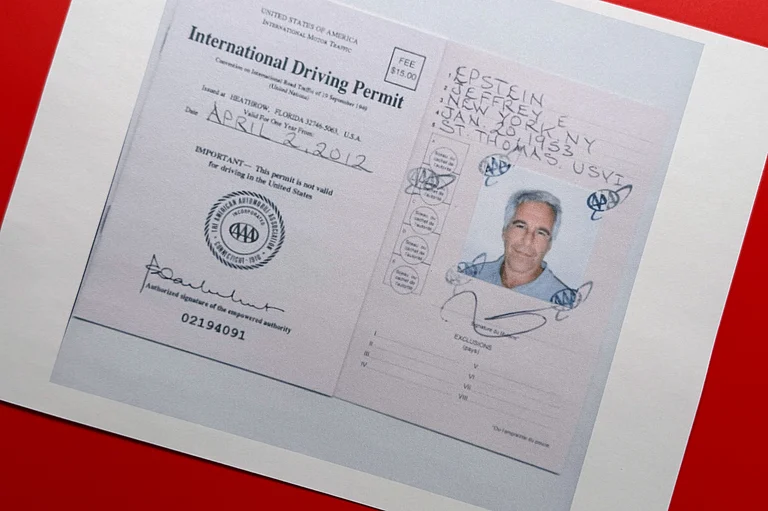"It's not immediately obvious that by presenting the analysis in the manner he has presented it, Amartya Sen has helped to clarify the underlying realities; a few at least would be led to assert that he's desperately anxious to obfuscate realities." —Ashoke Mitra, leftist economist and MP, reviewing Amartya Sen's book Poverty and Famines, 1982 Translation: Amartya Sen is a running dog of capitalism.
"Throughout his long career and voluminous writings, Sen has done little but give voice to the muddleheaded views of establishment leftists who dominate his world of academics and non-governmental organisations." —Robert L. Pollock, editorial page writer of Wall Street Journal, largest-circulated US daily known for its pro-establishment stand.
Translation: Amartya Sen is a retrogressive left-winger.
"Who else (besides Amartya Sen) has pleaded for globalisation plus social investment? Swaminomics, of course. The World Bank too. Even IMF." —Swaminathan S. Anklesaria Aiyar, right-wing economic journalist in his weekly column Swaminomics.
Translation: Amartya Sen is a liberal free-market capitalist. Even the IMF loves him.
"The whole tribe of economists is being elevated because of the Nobel Prize given to Amartya Sen." —Montek Ahluwalia, former World Bank economist and former finance secretary, in The Telegraph, 18 October, 1998.
Translation: Whatever he is, it is our duty now to praise this man as no one has been praised before.
WHO said you couldn't be everything to all the people all the time? What's common to the above random quotes is that the speakers are all using Sen and his work to promote their own ideas, ideologies, and political beliefs. Sen's philosophy and ethics have been—and are being—used like water, taking the shape of whichever vessel it's poured into.
So we have a man who
That's at a reflected-glory level on a personal scale. On an ideological plane, Sen's motherland is seeing a rather acrimonious war over him—a war of appropriation. Perhaps the best example of which is Swami Aiyar's comment on Sen, where in a thinly-veiled attack on the leftists, the writer (a frequent World Bank consultant) tries to show there's no contradiction between Sen's theories and the line taken by the WB and the IMF: "Reacting to criticism from people like Sen, IMF in the late 1980s started safeguarding social and anti-poverty programmes in structural adjustment loans." Surreally enough, this admiration gets echoed across the earth by the world's famous Fund-Bank basher, Harvard economist Jeffrey Sachs: "Sen has helped give voice to the world's poor.And that's no small matter, for their very lives may depend on having their voices heard."
If the Fund, increasingly under attack due to an ailing global economy, has changed its stance, it could be more because of the dismal failure of its restructuring programmes in poor nations, rather than Sen's criticism. As the world becomes more and more interdependent, the Bretton Woods sisters are desperate for a change of identity and role. The Bank has already reinvented itself under current president James Wolfen-sohn: it's kinder, gentler, often sounding almost like an NGO. It's a matter of time before the Fund follows suit. If the Indian Nobel laureate's work lends a hand to the makeover, all the better.
Aiyar's main argument may have been to discredit the Left for their paranoia of the global institutions. But the Left too has usurped Sen, hook, line and sinker. There was a time when economist Ashoke Mitra, once finance minister in leftist West Bengal, had accused Sen of merely stating the obvious: that the poor starve because they don't have the money to buy food. But the current state finance minister, MIT-trained leftist economist Asim Dasgupta, says: "Over the past decade, the economist-philosopher has returned to this original area of interest, the basic problems faced by common people in the developing world relating to food, education and public health. In that, he has vigorously emphasised the role of the welfare state." Adds leading leftist economist Amiya Bagchi: "I agree with Sen's view of the society being reorganised to bring about less inequality. That it would mean empowerment of every human being from childhood on. It's just not a matter of a social security net." The Left Front government is now considering a reception for Sen at Calcutta's Ranji Stadium, with more than a lakh attending (see accompanying story). And who cares if Sen blames Mao Ze Dong's Communist regime for the 28 million famine deaths in '70s China?
It's stupid, of course, to put humanist Sen in an ideological straitjacket. Says former Delhi School of Economics head of department, K.N. Raj, Sen's boss and mentor: "The term 'welfare economics' is ironic as all economics is concerned with the welfare of the community." An argument buttressed by former WB economist Surjit S. Bhalla, usually labelled extreme right wing: "If concern for the poor is considered the criterion for being leftist, then all of us are leftist.The difference between the left and the right is the difference in the ways they look at solving the social ills of poverty, illiteracy or gender inequality. In that, I may have a difference with Sen insofar as he wants the State to take charge of these problems."
EMPHASISES Ashok Guha, close associate of Sen and professor of economics at JNU: "Intellectually, Amartya has always carved out his own space. He's an original. In fact, social choice was a dead end for economists. But Amartya travelled a lonely furrow. His unwavering commitment to moral and ethical values probably delayed his getting the Nobel." So if Sen's a misfit in the traditional Left vs Right debate, it has been his well considered decision. He looks at himself as a leftist, but that's never stopped him from criticising the Left. Talking about private involvement in education, he told a private TV channel in August: "I see myself as a leftist but I do think sometimes the Left has to rethink on these issues and there's a need for open mindedness without losing sight of the objectives."
If the war over Sen reflects the extreme poverty of ideas and imagination in India, the best tributes to Sen too ironically come from the right-wing Chicago School of Economics, which has long hogged the limelight at the Swedish Royal Academy. Says Nobel laureate Gary Becker: "Understanding poverty surely has to rank among the most important issues that economists study." Sums up Bagchi: "Sen always has a sense of balance. You must see him as a persuader, not an agitator. There is a role for someone like that. His nearest predecessor I can think of is John Stuart Mill, a reasonable voice." A rational voice in an increasingly strident world with whom everybody identifies—can there be a bigger contribution to society?


























